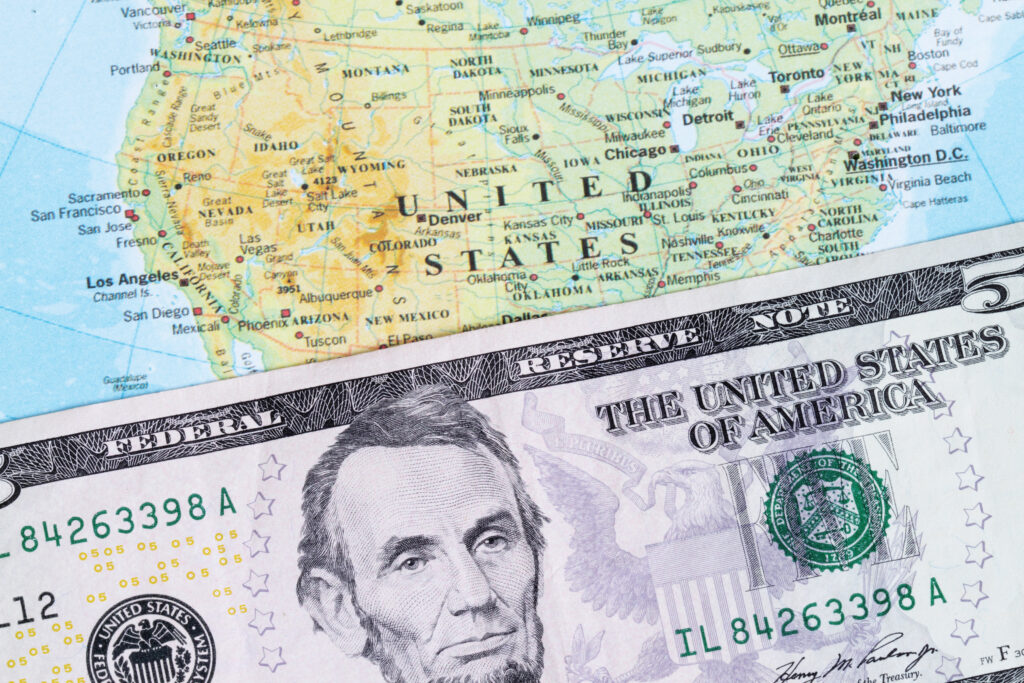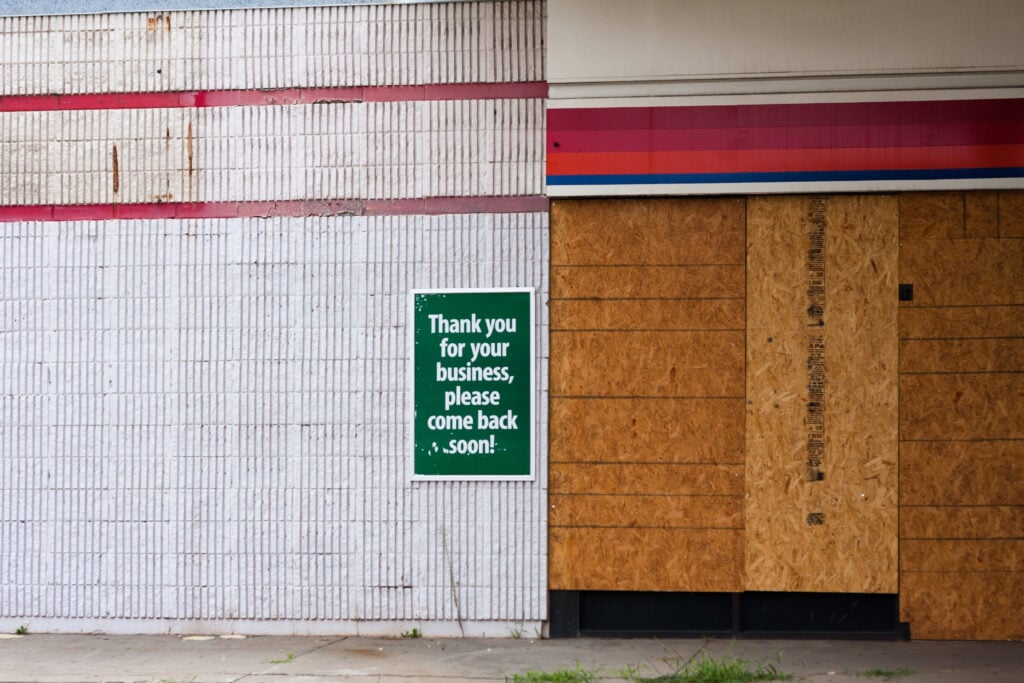April 15 is traditionally the day federal and state income taxes are due, but like so much else, Tax Day is on hold for the time being. Meanwhile the pandemic’s disastrous and uneven effects on communities and shared institutions are decidedly not suspended. But nor are the efforts of individuals, advocates, and policymakers to develop solutions to respond to the immediate crisis while also building better systems going forward. ITEP’s recommendations for state tax policy responses are now available here, and this week’s Rundown includes experiences and perspectives on paths forward from around the country.
Major State Tax Proposals and Developments
- VIRGINIA Gov. Ralph Northam signed and amended a number of bills over the weekend that would cut nearly $2.3 billion from the biennial budget and freeze new spending. He kept worker-friendly bills in place, such as a minimum wage increase, but pushed back their effective dates. Despite the economic turndown, one of the bills extends the motion picture production tax credit from 2022 to 2027. The General Assembly will take up his amendments next week and have another chance to reconsider the budget during a special session in the summer or fall. – KAMOLIKA DAS
Recommended Reading on State Responses to COVID-19 Pandemic
- ITEP resources on policy responses to the pandemic are available here, featuring our just-released report on how states can shore up revenues and improve their tax codes.
- The New York Times, The Hill, and Governing report on the growing gap between plummeting state revenue projections and rising pandemic-related spending needs.
- U.S. News & World Report covers the uneven status of Rainy Day Fund savings as states around the nation look to these to partially fill their revenue gaps.
- The Center on Budget and Policy Priorities shows how these issues could add up to shortfalls of $500 billion or more and require significantly more federal fiscal relief.
- Looking forward, Pew offers guidance on how states can improve their budgeting practices to better weather the current and future recessions: build up reserves, conduct stress tests, improve flexibility to nimbly change policies when needed, and focus on long-term fiscal health in addition to short-term budget balancing.
- Stateline, Route Fifty, and Governing each cover the multi-state cooperation taking place as groups of eastern and western states make plans to re-open their economies carefully. Route Fifty also covers Utah’s effort to chart its own course forward.
- Unfortunately, Stateline also reports, it’s the South that will endure more death and economic loss from the pandemic than other regions across the nation. And The Atlantic explores how the pandemic threatens to intersect with and exacerbate already extant inequalities.
- Friction over pandemic responses and timelines between state and federal authorities is well chronicled, and Route Fifty notes that similar issues are popping up between states and cities.
- Governing continues to bring outside-the-box resources to bear on the COVID-19 pandemic, this time reviewing lessons learned from three historic plagues.
State Roundup
- Local governments across the country, from ALASKA to MAINE, brace for the economic fallout resulting from the coronavirus pandemic.
- ALASKA Governor Mike Dunleavy vetoed $210 million from the state’s budget. The budget includes a $1,000 dividend to residents from the state’s quickly draining Permanent Fund Reserve. He then called on the Legislature to pass additional economic stimulus.
- ARKANSAS Gov. Asa Hutchinson delivered his State of the State address on April 8th. Despite his request for help in cutting the proposed budget and lower revenue projections, the majority-Republican Senate rejected a bid to delay a scheduled income tax cut until 2022.
- CALIFORNIA’s government is estimating its pandemic-related costs, just through the current fiscal year that ends June 30 and not including cities or counties, will total $7 billion.
- CONNECTICUT is seeing its normally reliable (though distributionally problematic) sales tax fail to perform, an issue we wrote about generally here.
- The DISTRICT OF COLUMBIA‘s quasi-public sports and entertainment authority, Events DC, will provide $18 million in aid for hospitality workers including $5 million for undocumented workers. Events DC is primarily funded by dedicated tax revenue from restaurant, hotel, and car-rental receipts.
- FLORIDA‘s Agriculture Commissioner Nikki Fried and Democratic members of Congress have urged Gov. Ron DeSantis and the state Cabinet to address budget issues related to the pandemic, especially since they have not held a meeting since early February. At the same time, jobless workers are struggling to receive aid from the state’s flawed unemployment system.
- GEORGIA reported that tax collections improved nearly ten percent in March, but the state is expecting a massive drop in revenue in April and May. Georgia may see a 50 percent decline in sales tax collection, its second largest source of revenue, in the next few months.
- In KENTUCKY, five of Gov. Andy Beshear’s vetoes were overturned by the legislature, including Senate Bill 5 which will now require special government entities, such as school boards, to obtain permission from their local government before increasing taxes.
- The LOUISIANA Supreme Court declined to reconsider its January decision that Walmart.com is not liable for collecting and remitting sales and use taxes on third-party sales. On a related note, Louisiana may still consider passing a marketplace facilitator bill by the end of the year.
- MARYLAND Gov. Larry Hogan ordered the state to institute an immediate budget and hiring freeze in response to the projection that the state will lose as much as $2.8 billion in estimated revenue.
- In MASSACHUSETTS, experts work to determine the impact of COVID-19 on the state budget. Agreement has yet to be reached, but the impact is expected to be “sobering”.
- The MINNESOTA Department of Revenue is extending its sales and use tax grace period to May 20 for business identified in the governor’s recent executive order.
- MISSISSIPPI‘s revenue collections improved in March, but the state expects the final quarter of the fiscal year to be much worse.
- Giving away $1 billion in corporate subsidies to build enormous futuristic luxury trucks may sound like the last thing a state would be prioritizing in these times, but MISSOURI is forging ahead to do just that.
- Democratic leaders in the NEW HAMPSHIRE legislature sued Gov. Chris Sununu to stop him from spending COVID-19 federal relief funds without going through the legislature’s joint fiscal committee.
- NEW YORK City’s comptroller called on city agencies to trim $1.4 billion in their planned spending in order to redirect funds to those most impacted by the coronavirus pandemic.
- Despite a decrease of 2.4 percent—or $890,000—in sales tax collections, OKLAHOMA saw an increase of $1.2 million, or 20 percent, in use tax collections over April of 2019.
- Facing an estimated $4 billion revenue shortfall, lawmakers in PENNSYLVANIA resumed session today. Ideas for additional funding have been floated. They include expanding the sale and extraction tax and taxing cannabis.
- SOUTH CAROLINA introduced a bill that would exempt prepared food and beverages from state sales tax and local hospitality tax.
- TEXAS Attorney General Ken Paxton issued an opinion that a new state law allowing tax exemptions ranging from 15 to 100 percent for property damaged in a natural disaster does not apply to economic, non-physical damage resulting from the coronavirus crisis.
- UTAH lawmakers announced that they will convene a special session beginning Thursday, April 16, to address the impacts of the coronavirus, including its effects on the state budget and revenue projections. A coalition called on the state to provide businesses with financial relief and to allow sales tax obligations to be deferred for certain payments.
- Last week, members of the VERMONT Senate returned to the Statehouse to approve measures allowing the rest of the chamber to vote remotely. Work on the state’s emergency budget adjustment remains on hold as immediate response to the pandemic takes precedence.
- WEST VIRGINIA Revenue Secretary Dave Hardy warns that the state could face a $500 million budget gap by the end of the fiscal year, which accounts for 10 percent of their general revenue budget.
- WISCONSIN‘s Assembly passed a coronavirus response bill—by a 97-2 vote—that conforms the state’s tax law to federal changes enacted in March 2020.
- WYOMING‘s Legislative Service Office issued a memo explaining that the current pandemic could cause state revenues to drop between $555 million and $2.8 billion over the next two years. State leaders expect to convene a special session to address shortfalls, which could lead to increases to property and sales taxes or a corporate income tax.
If you like what you are seeing in the Rundown (or even if you don’t) please send any feedback or tips for future posts to Meg Wiehe at [email protected]. Click here to sign up to receive the Rundown via email.





